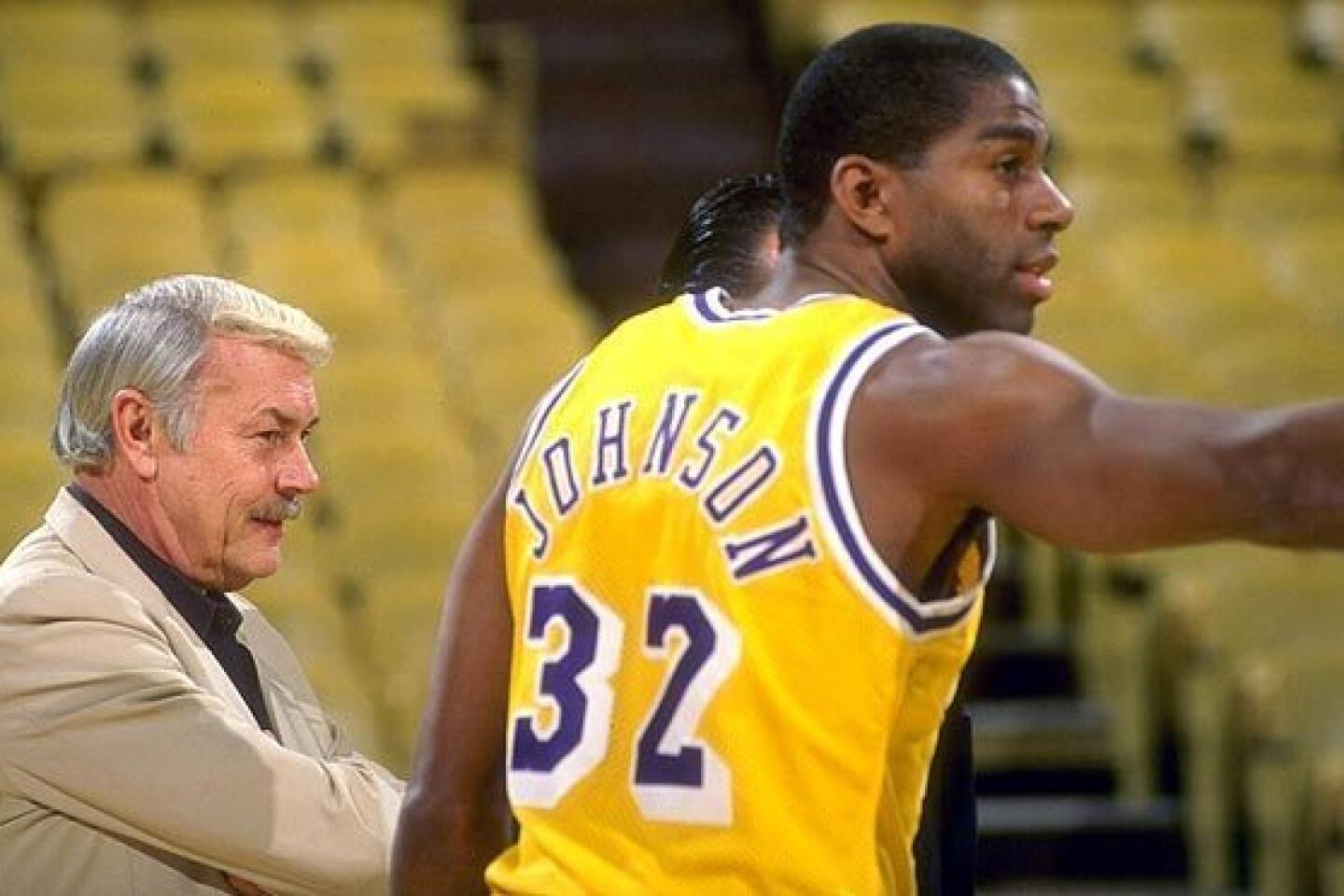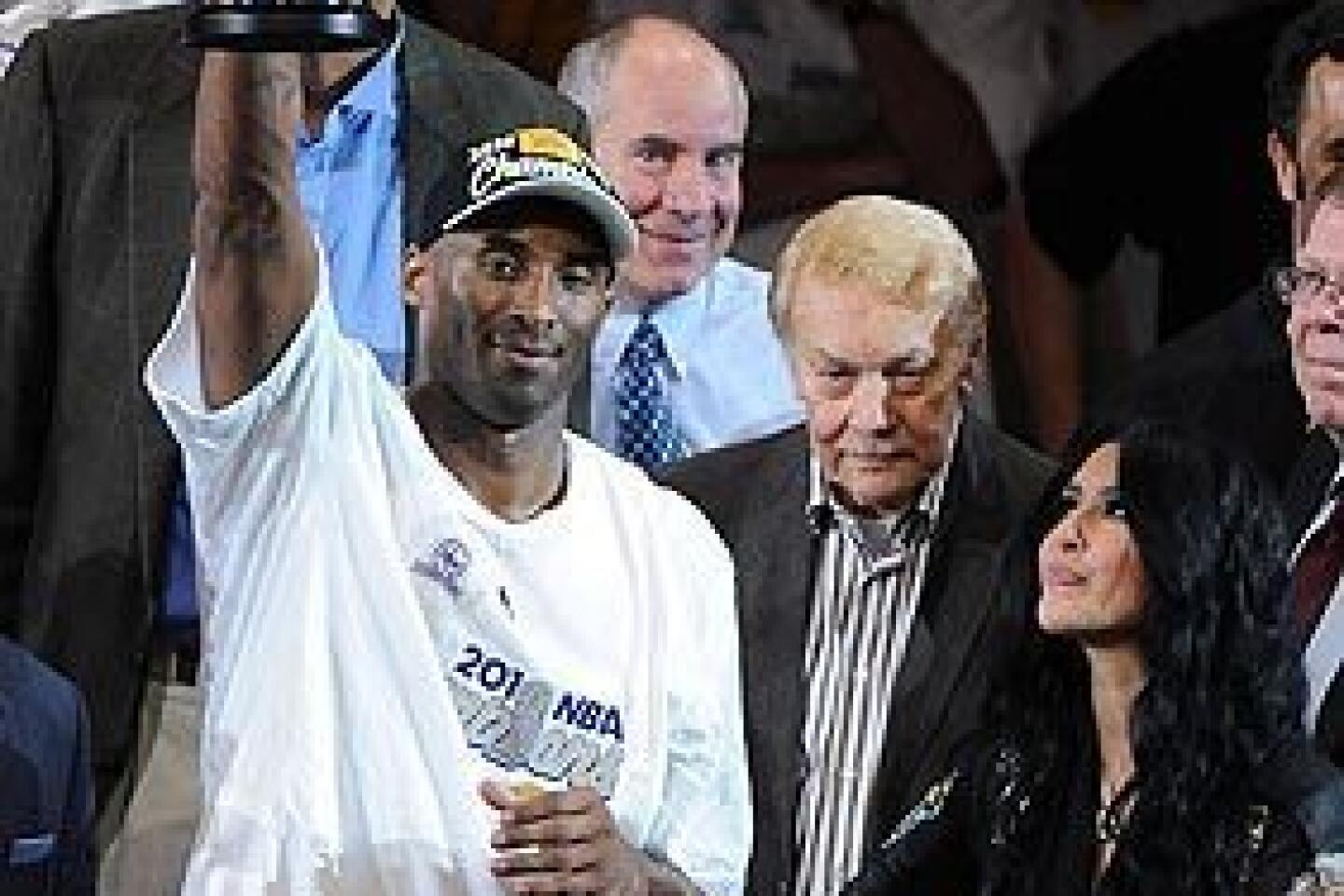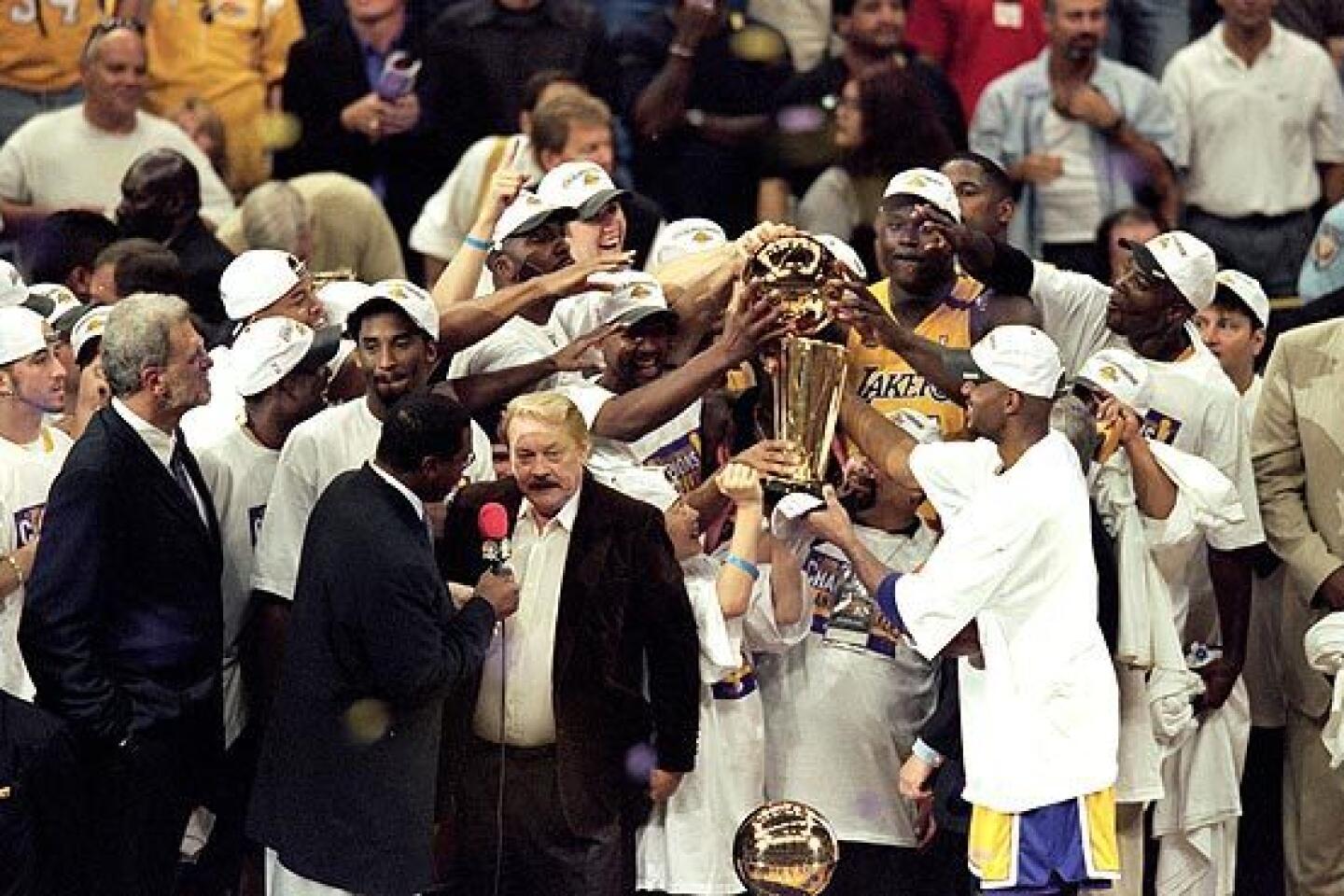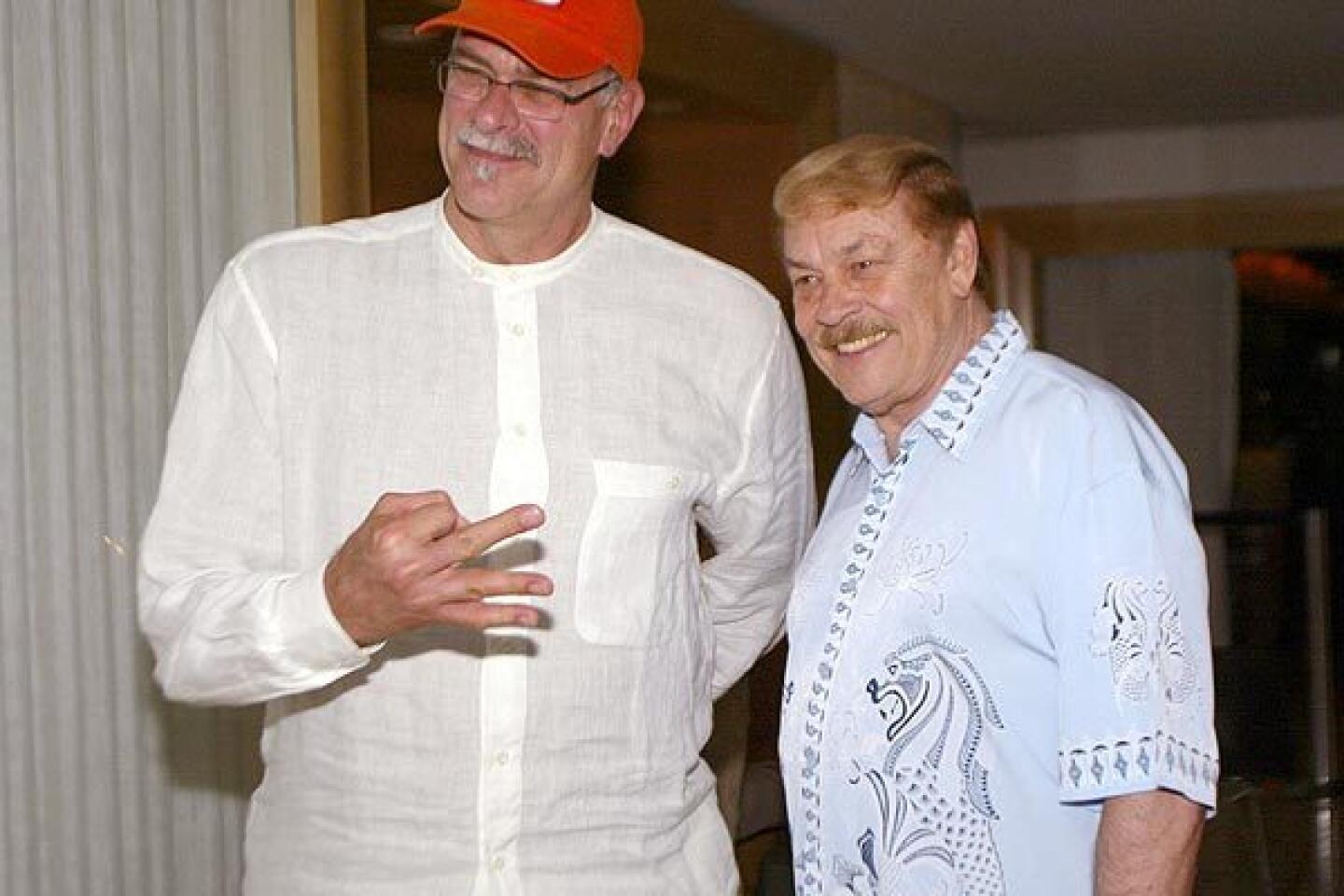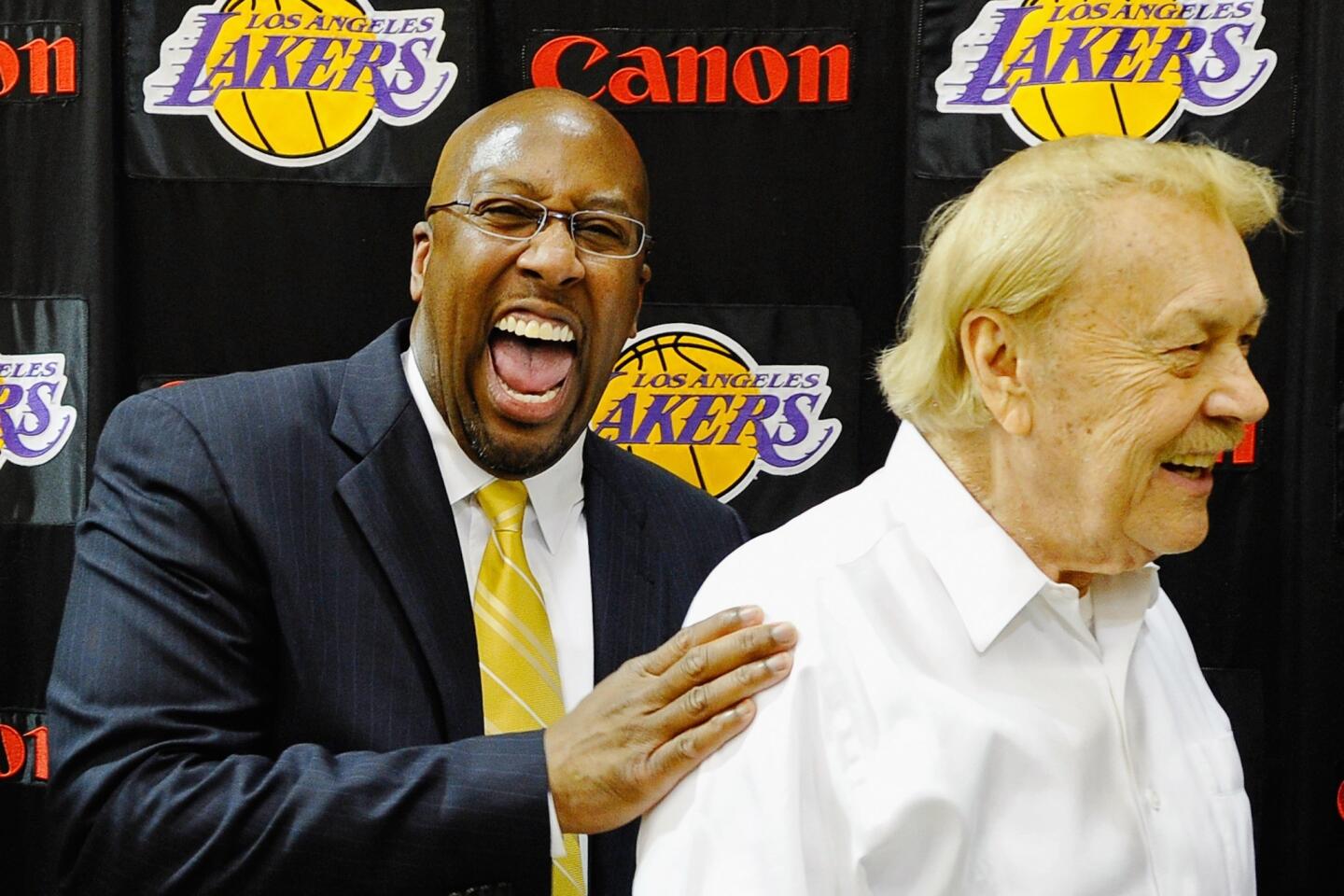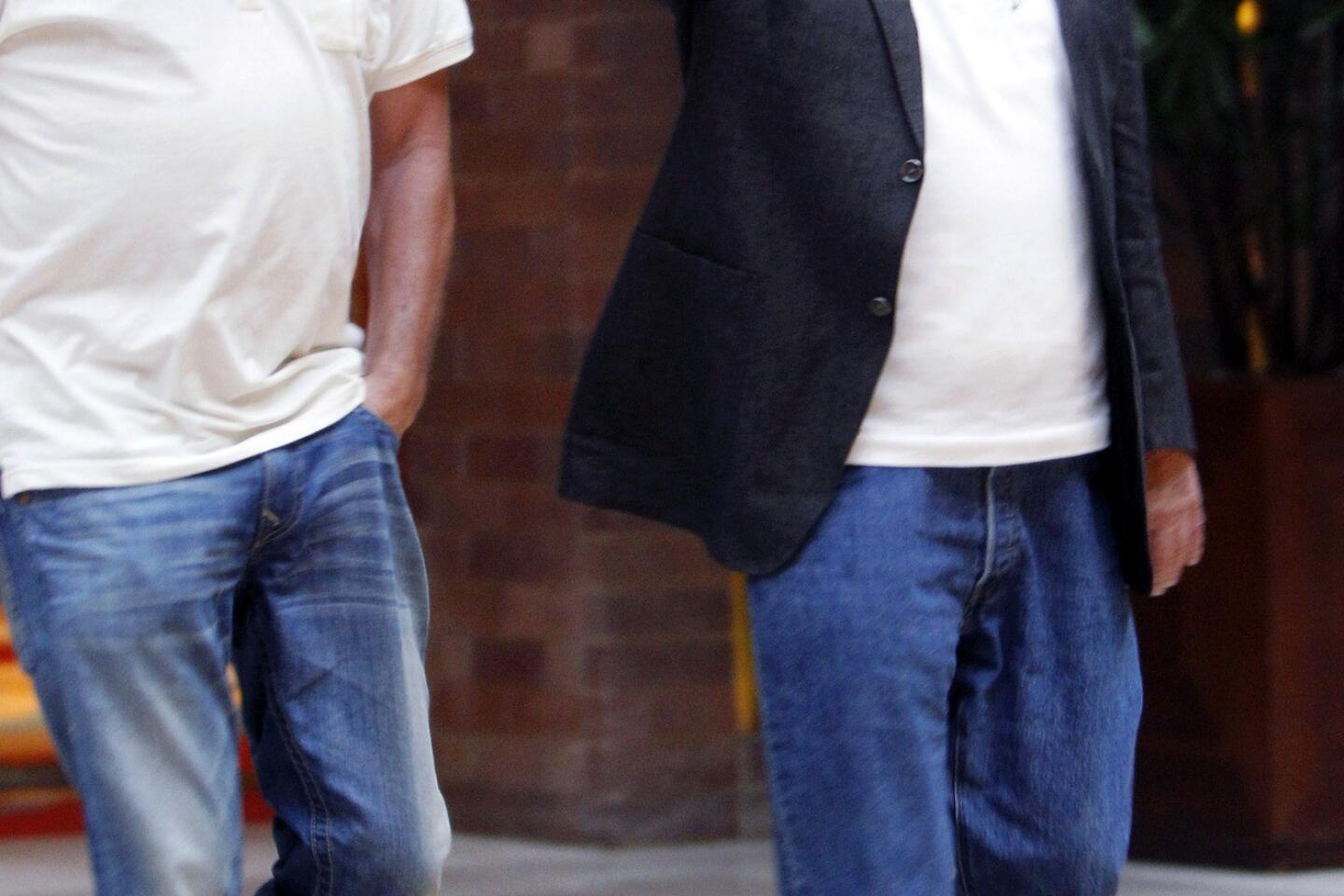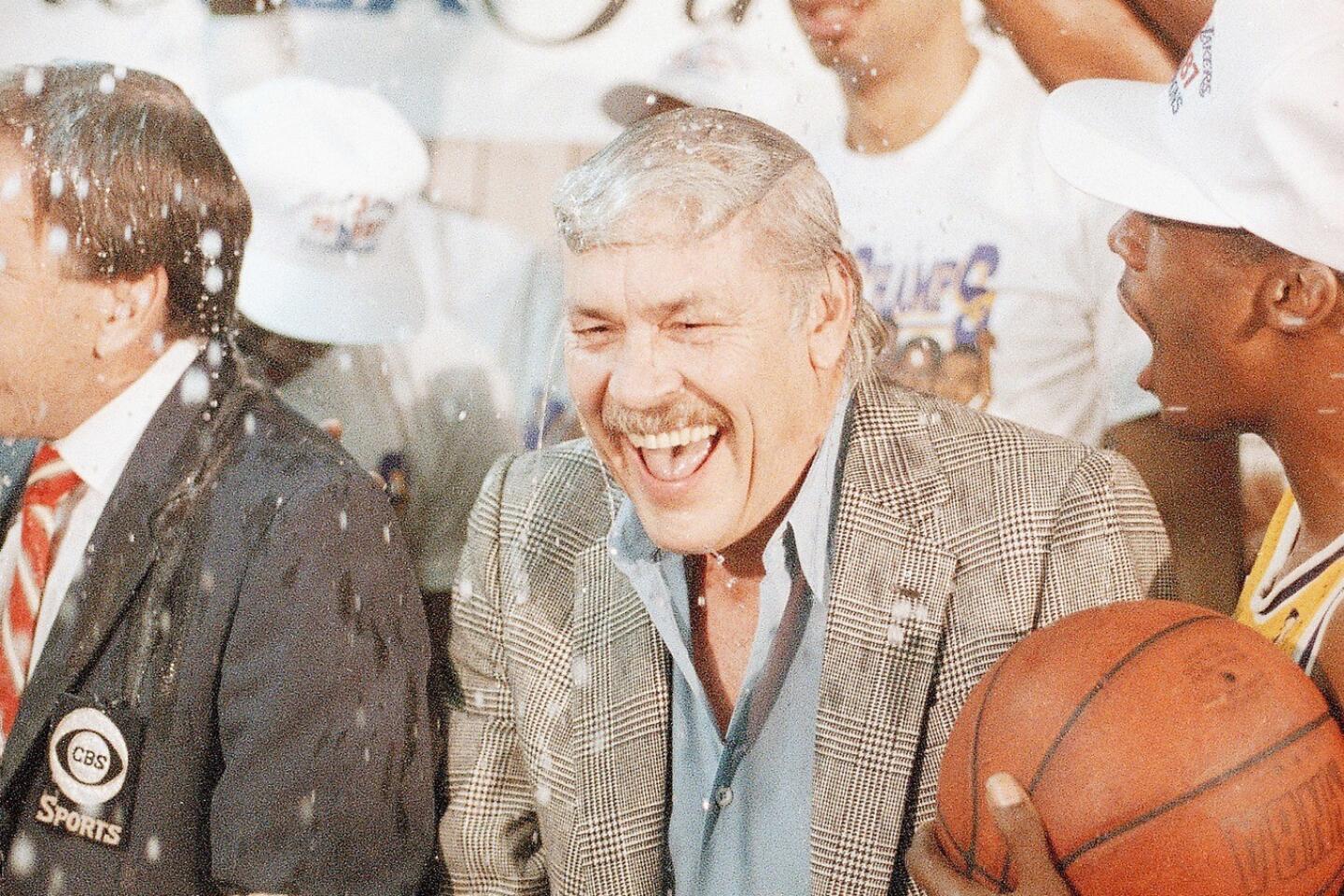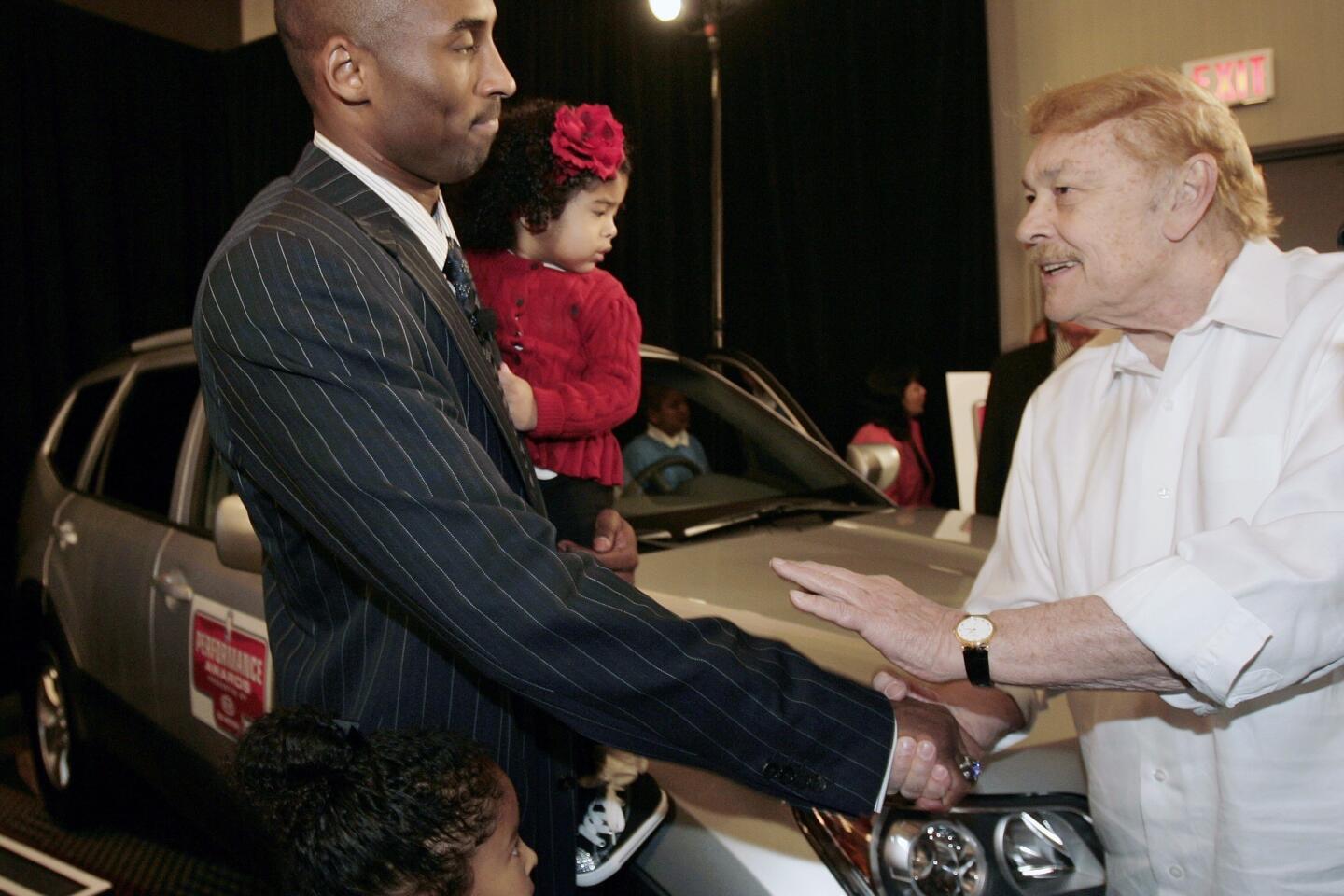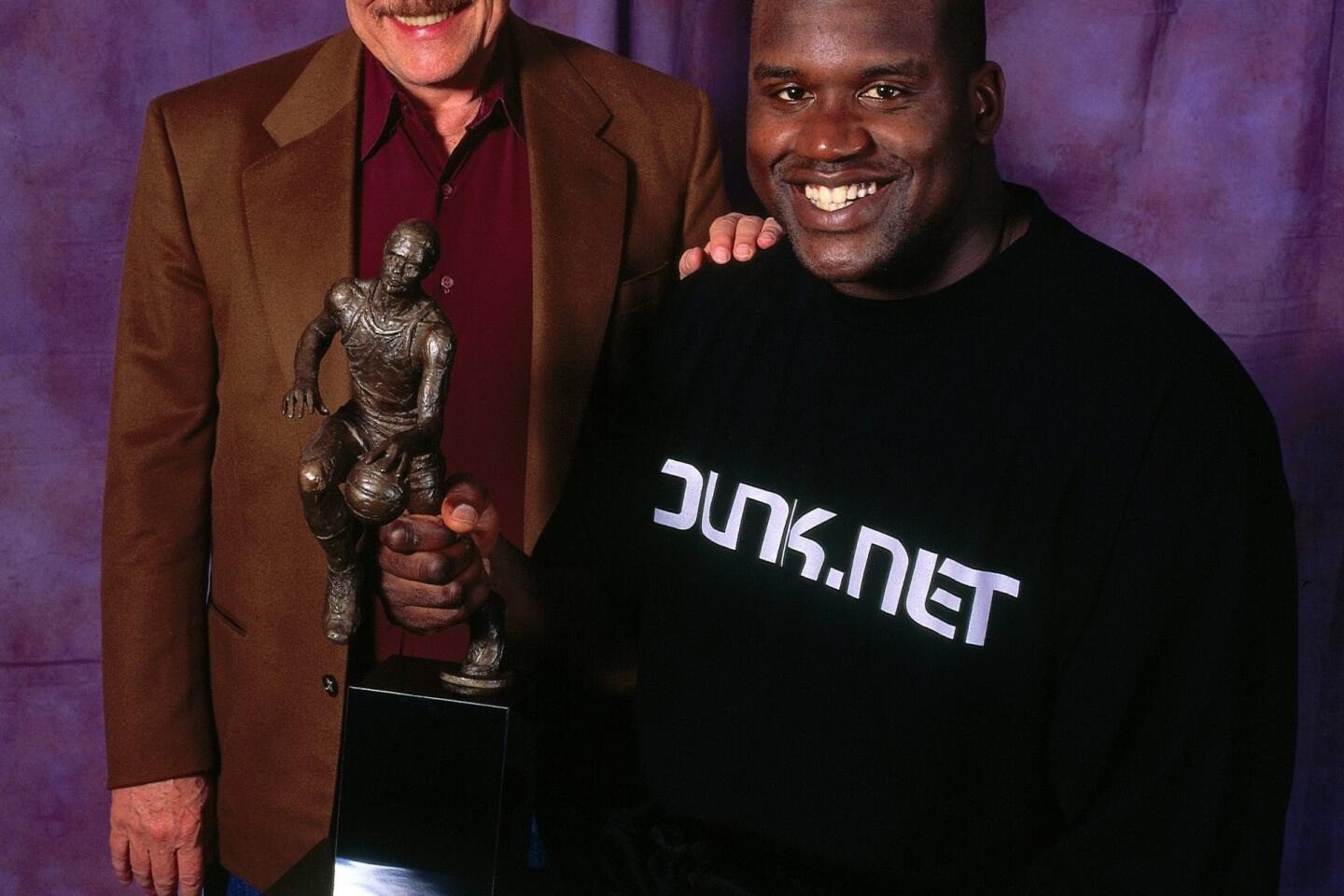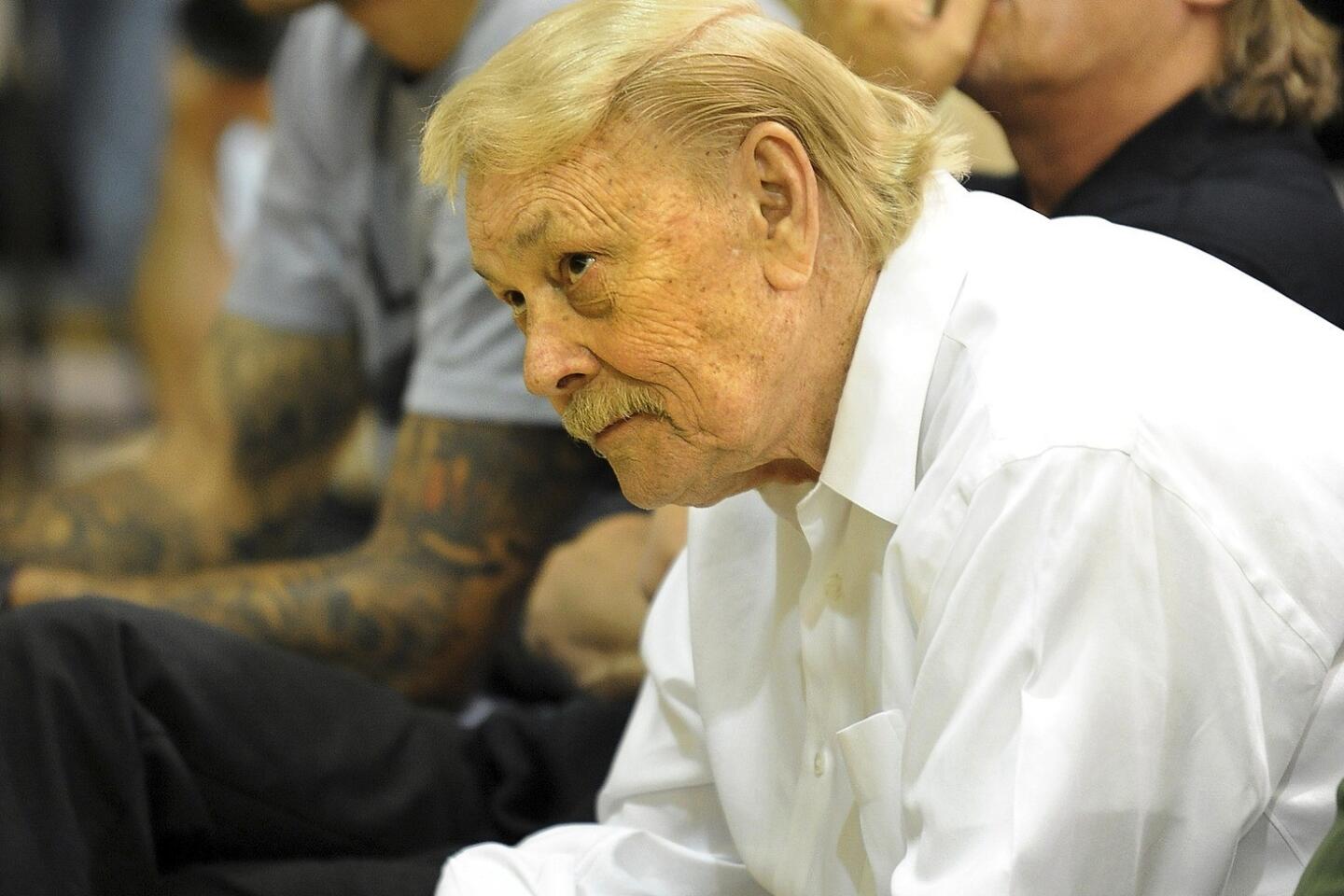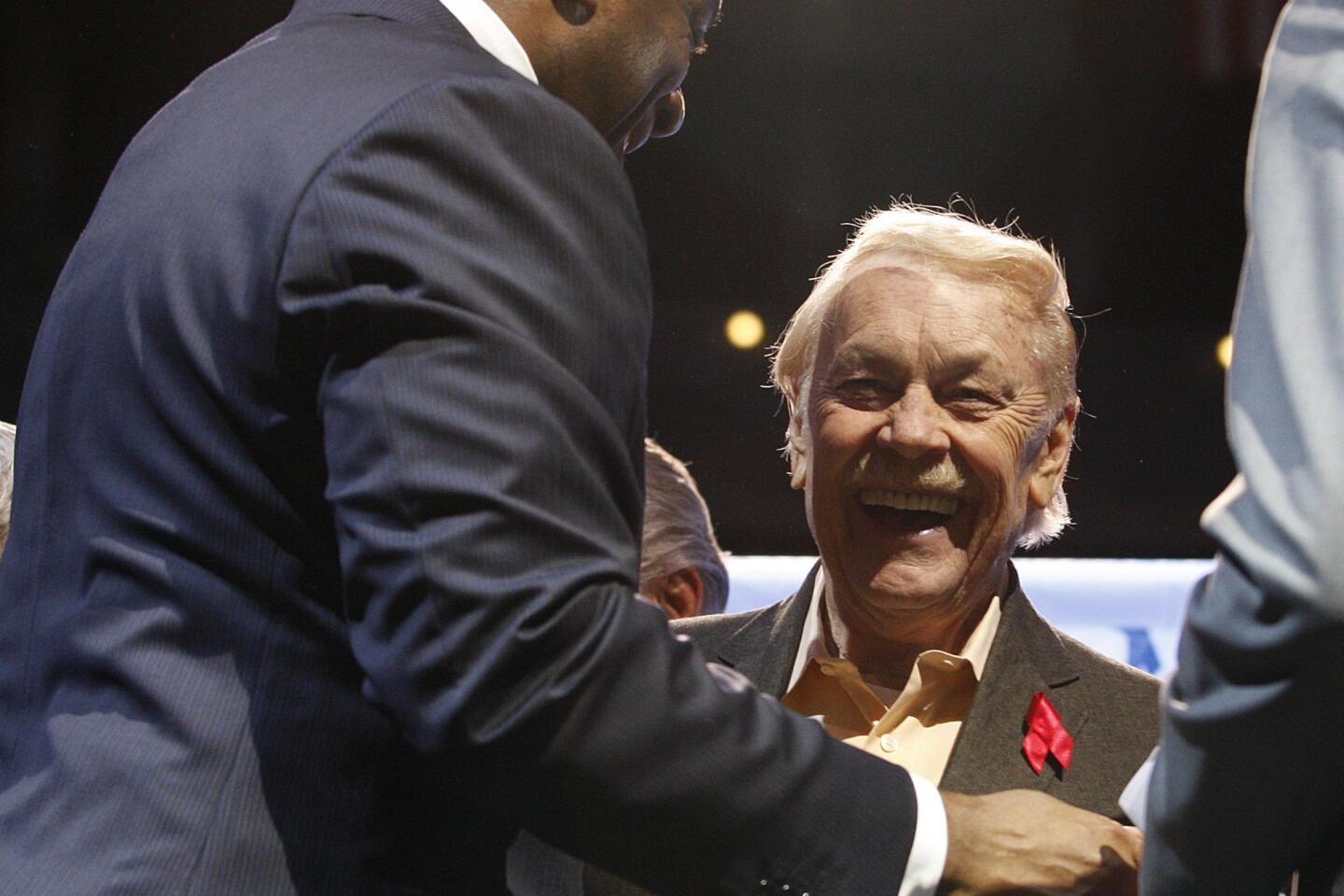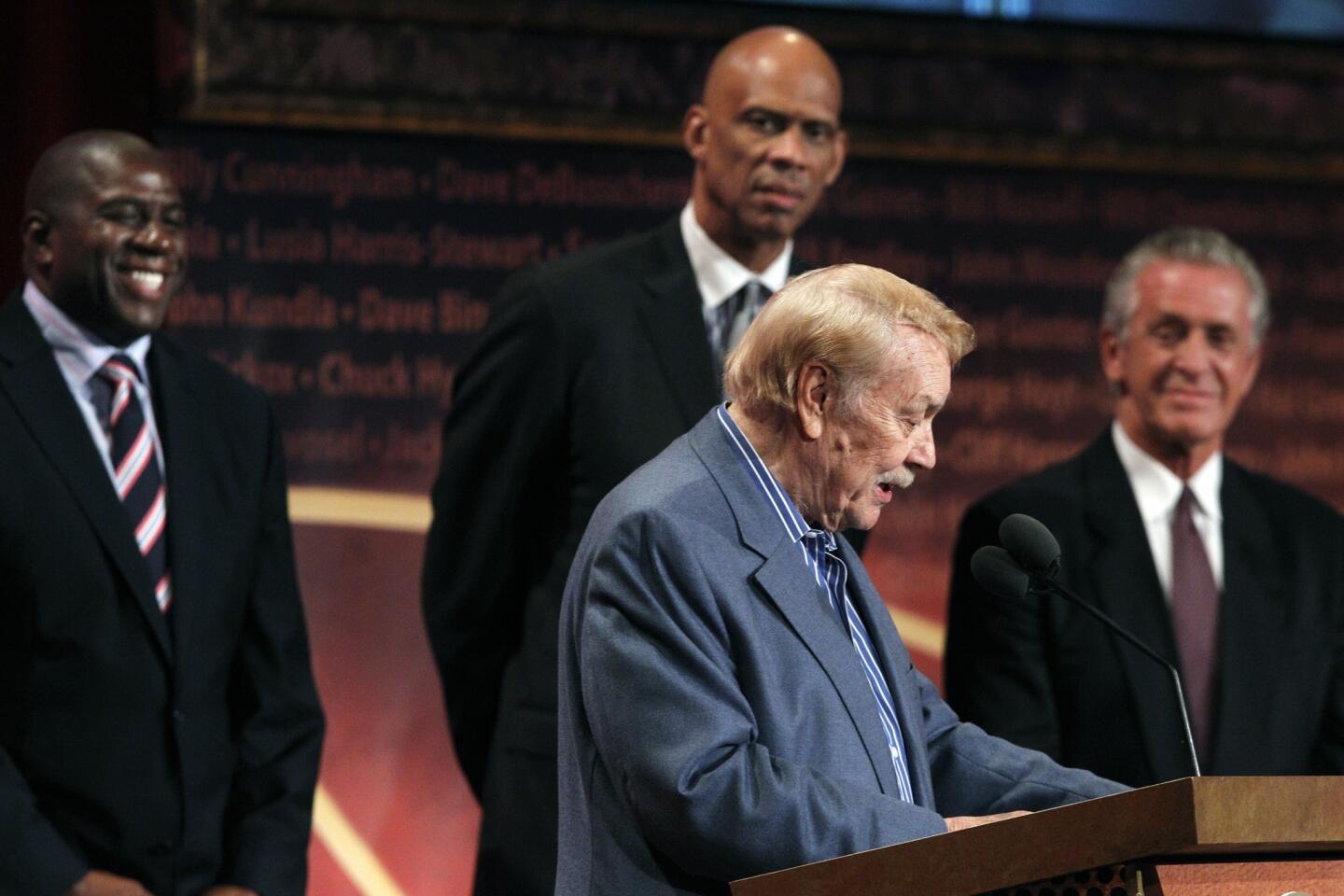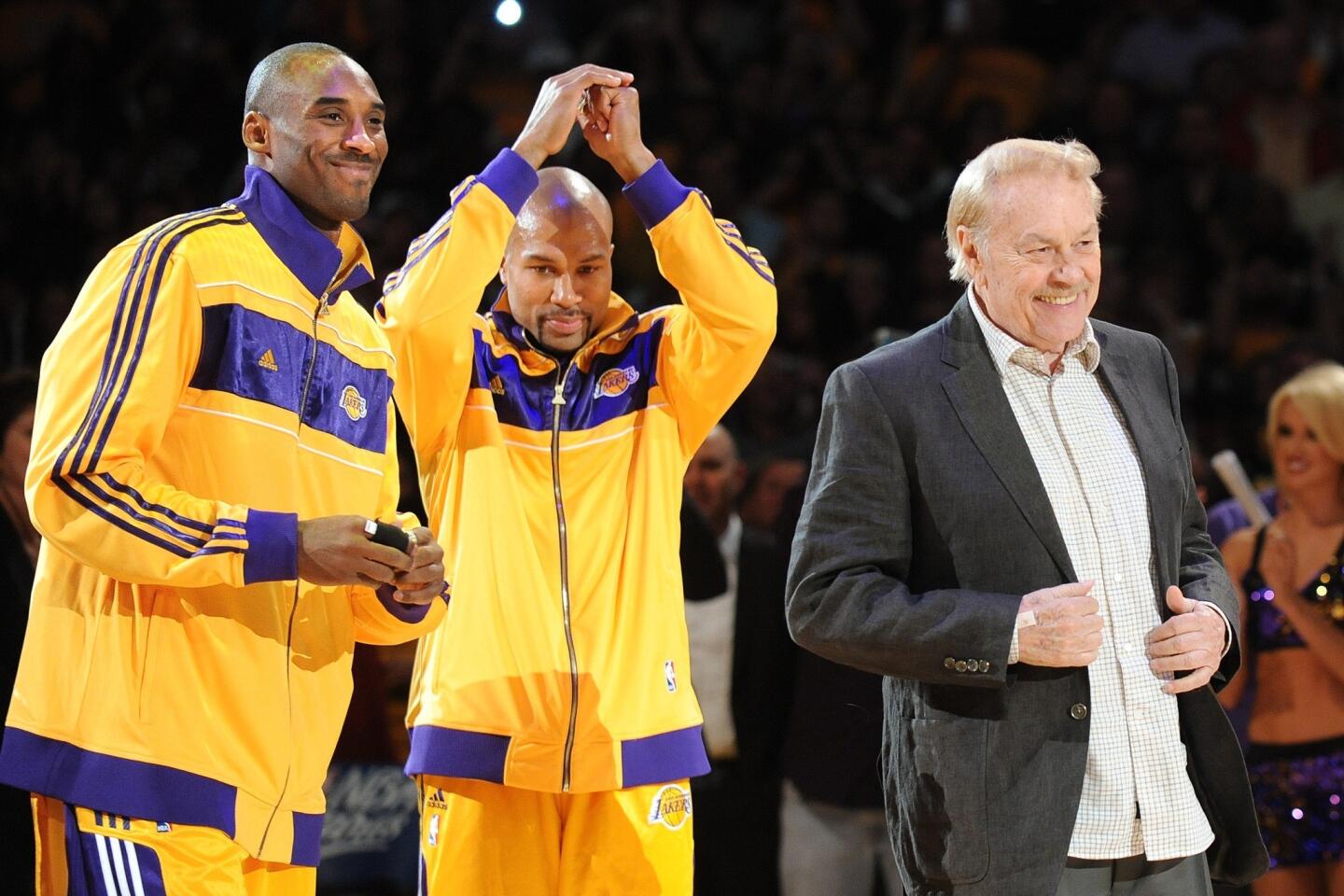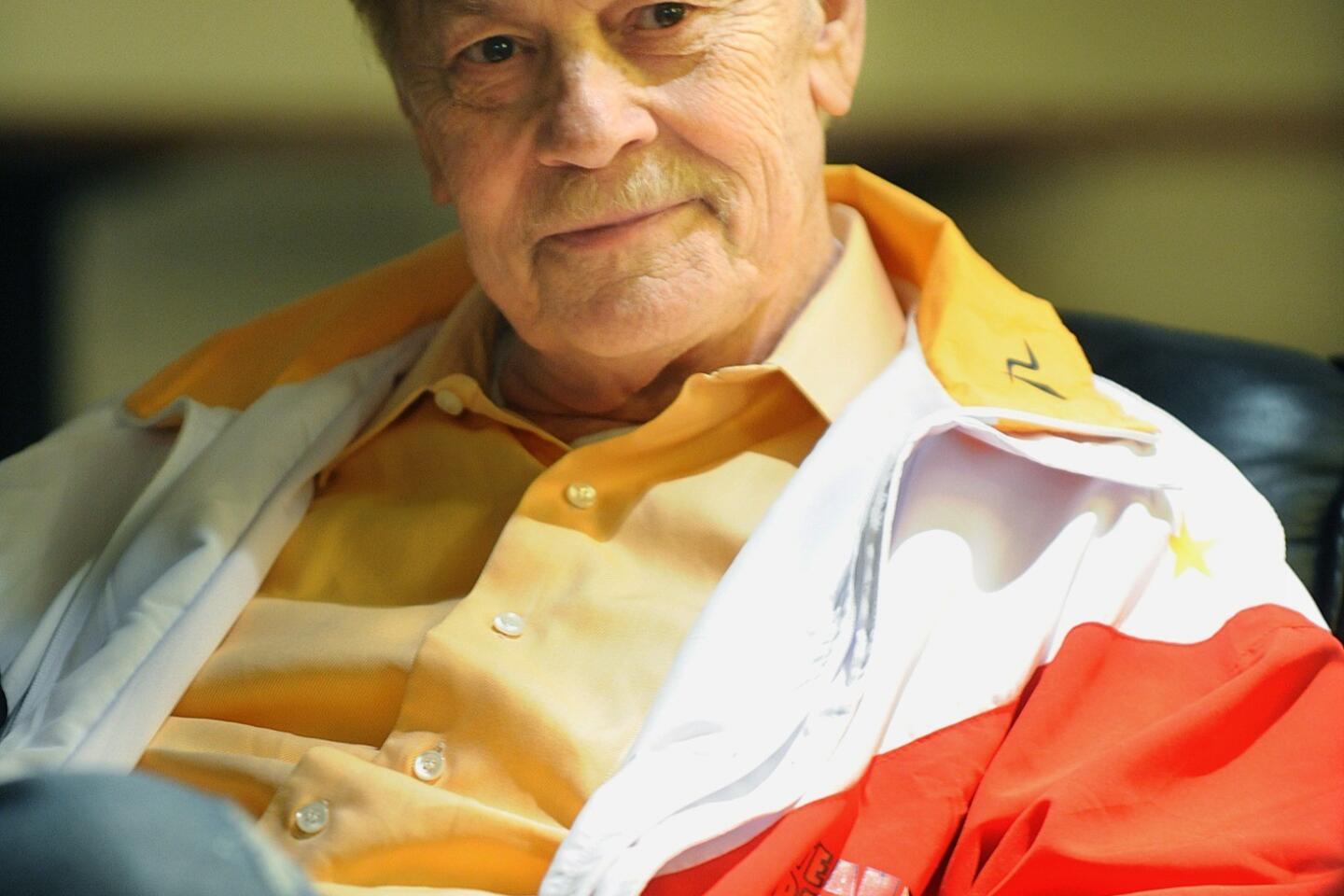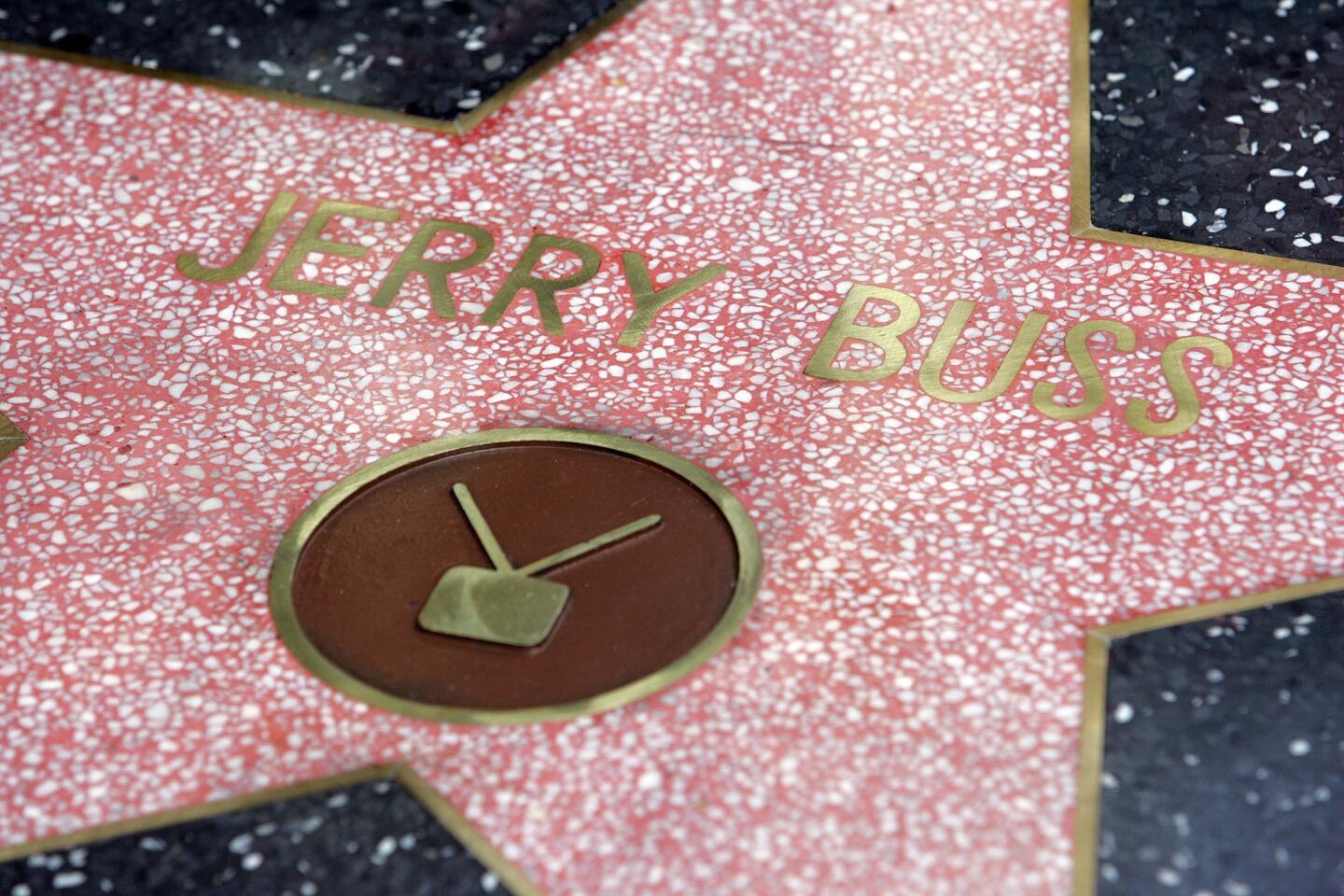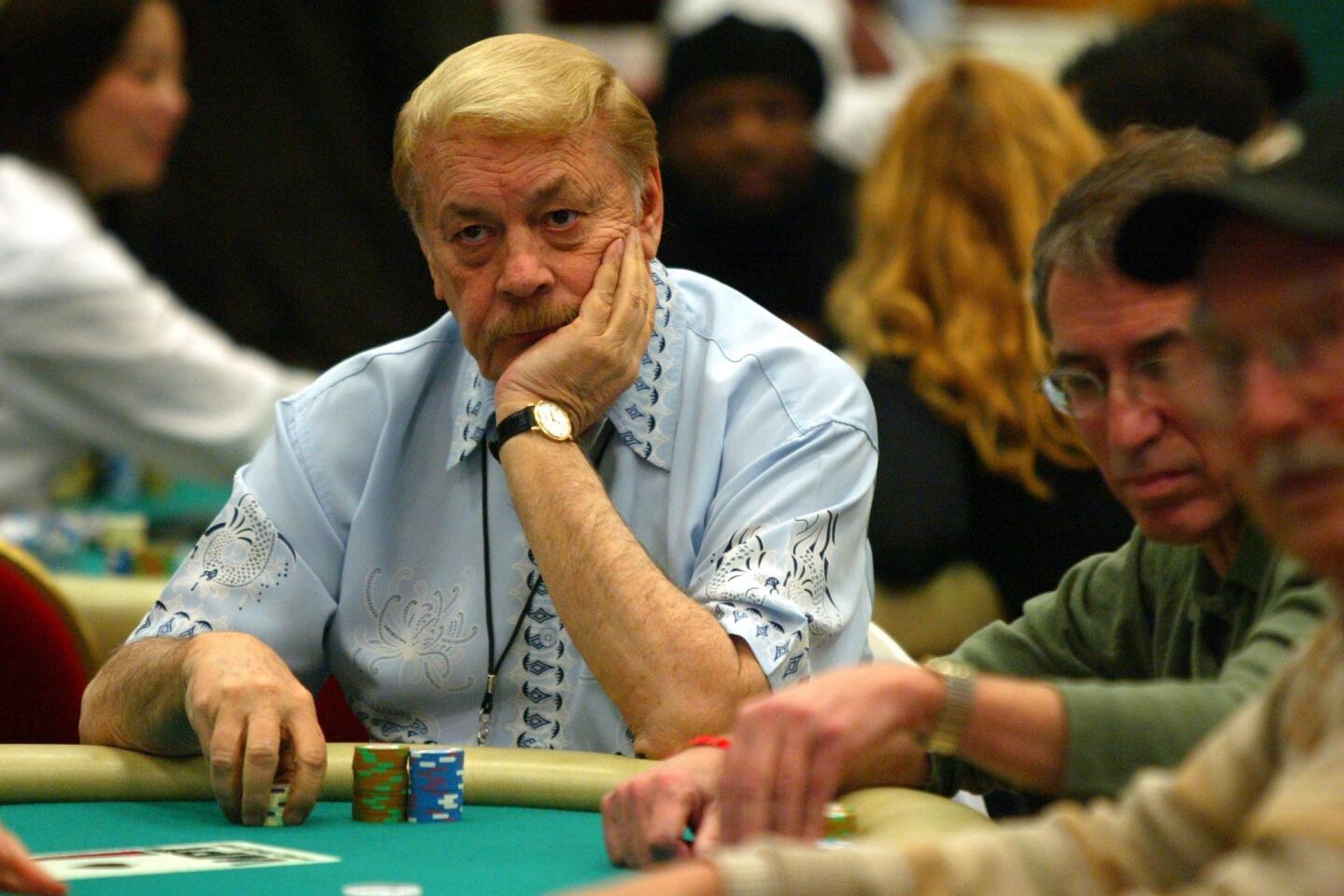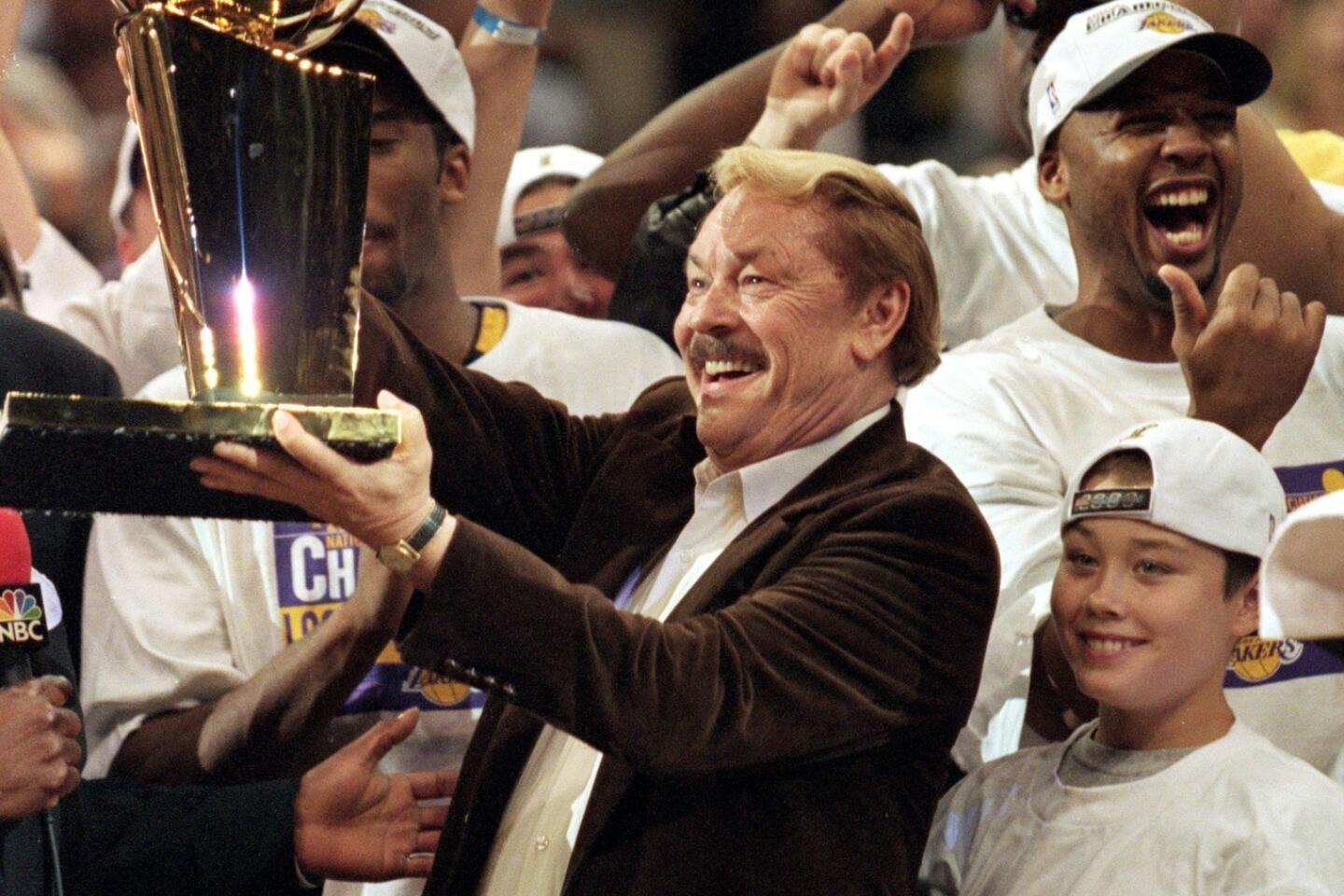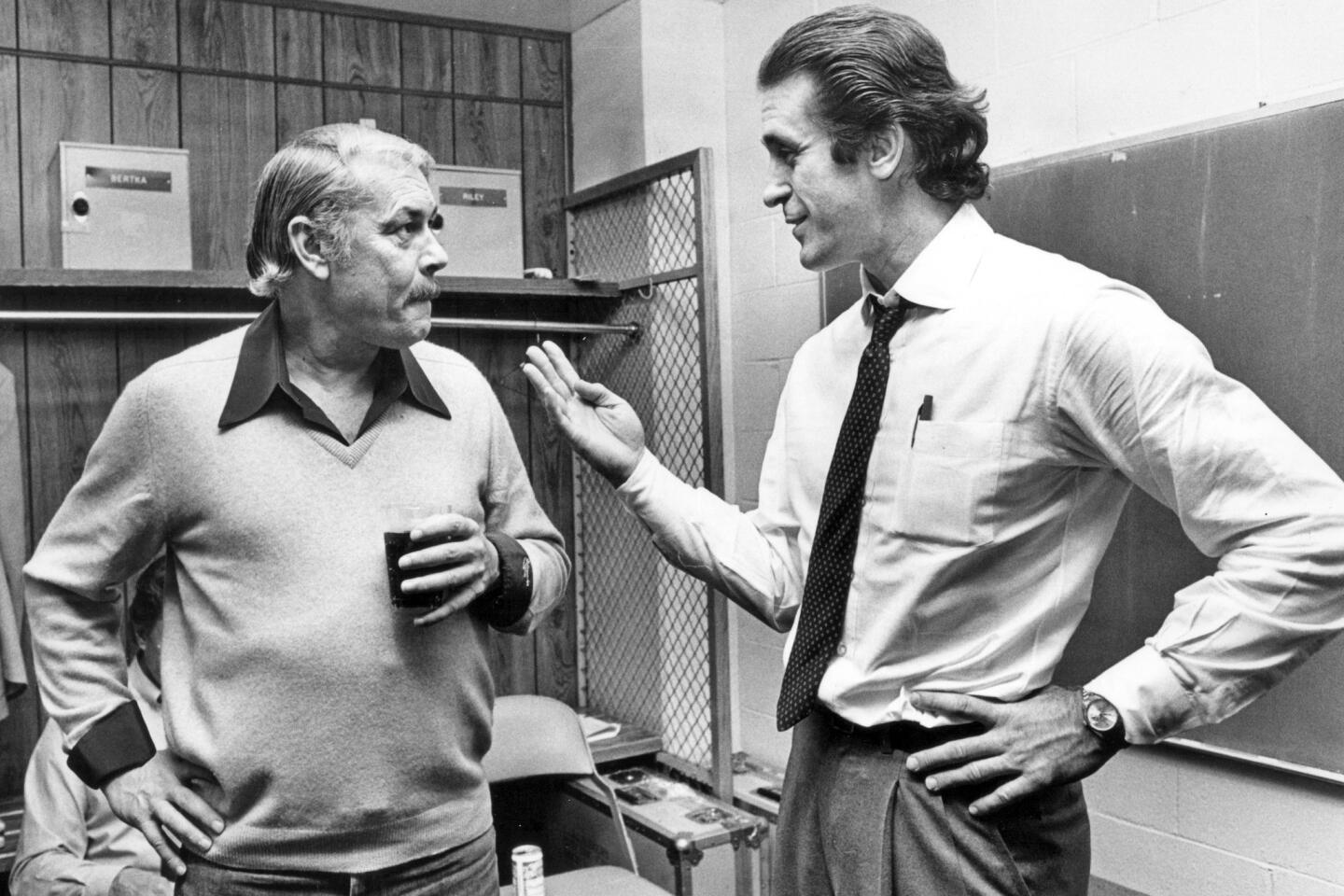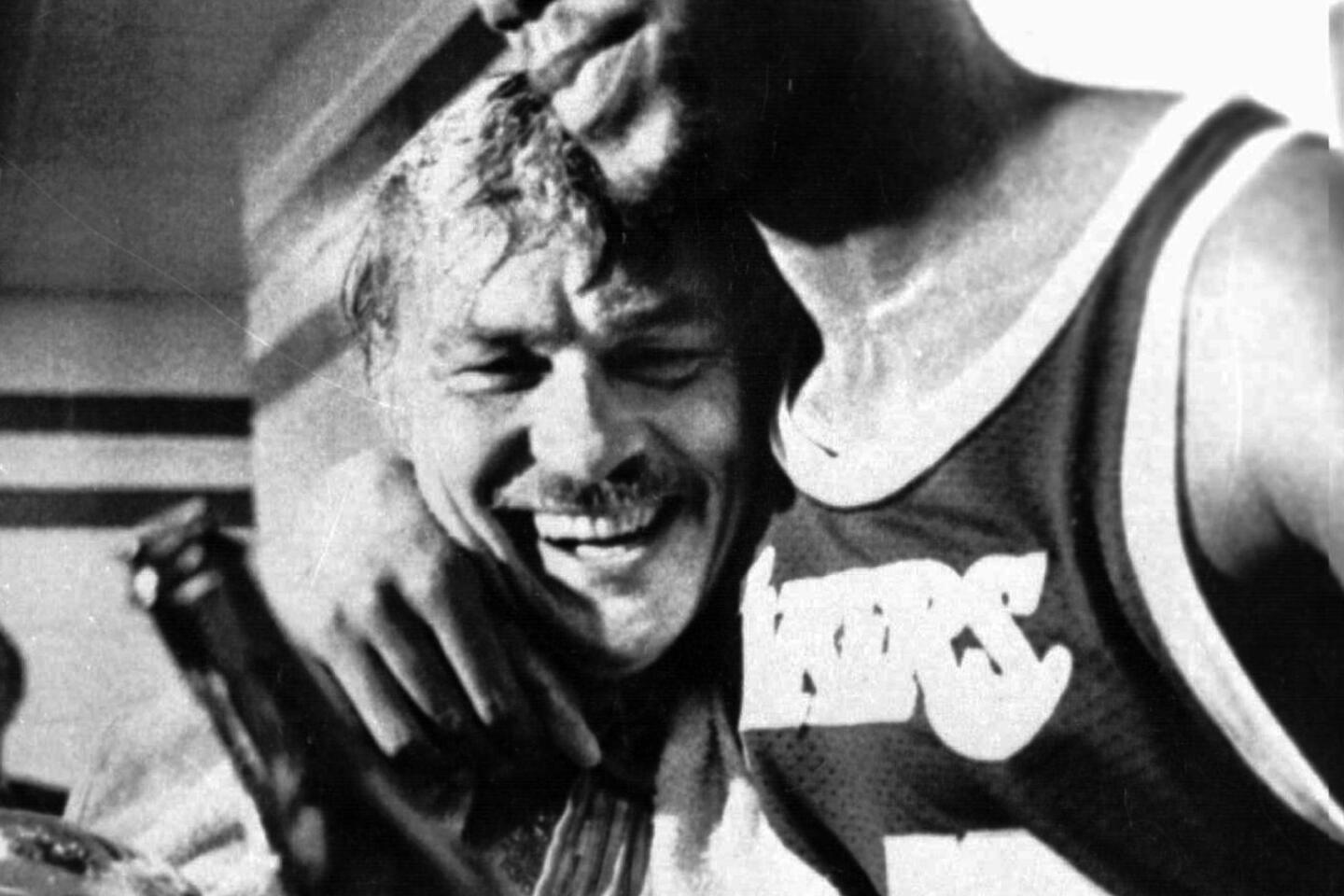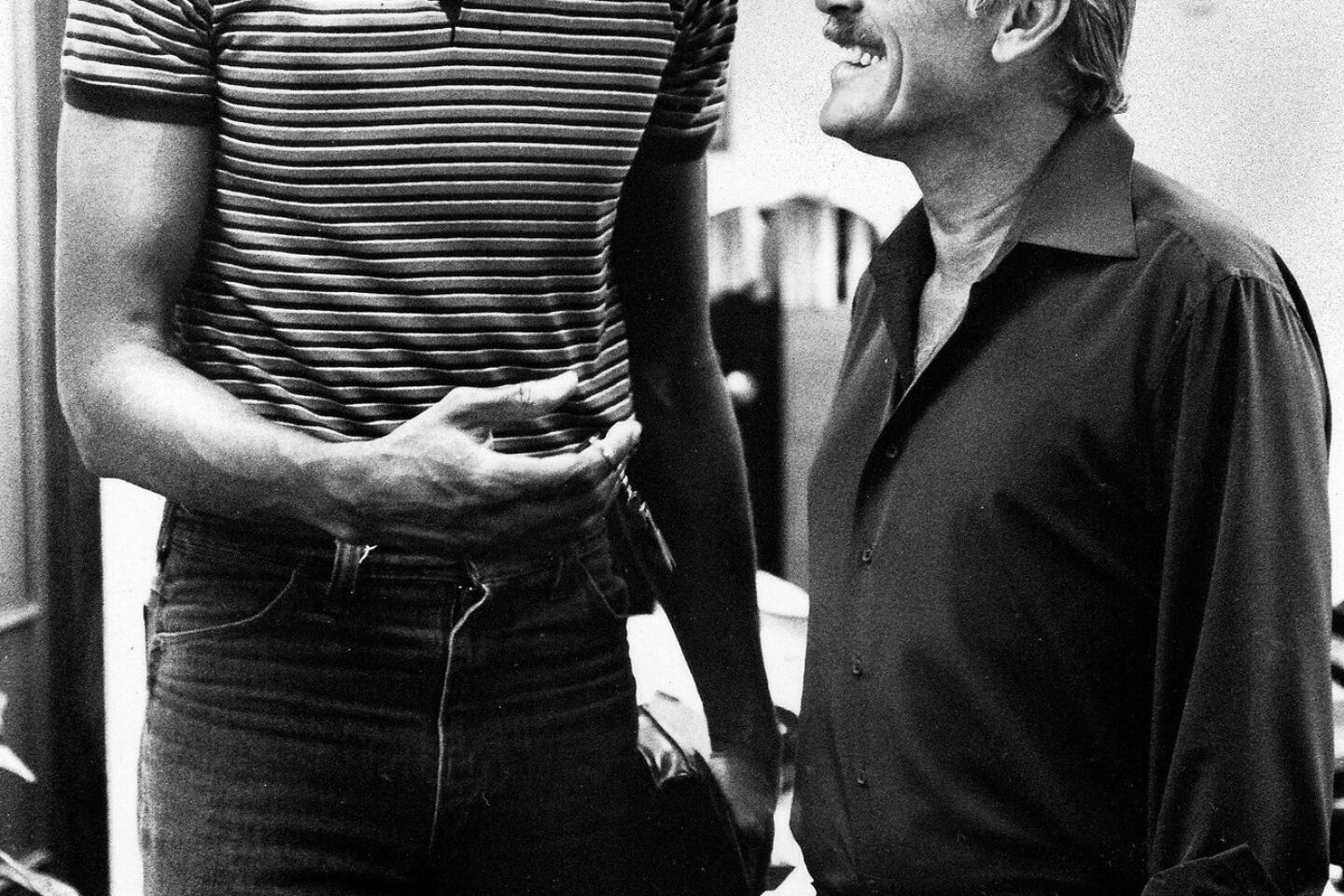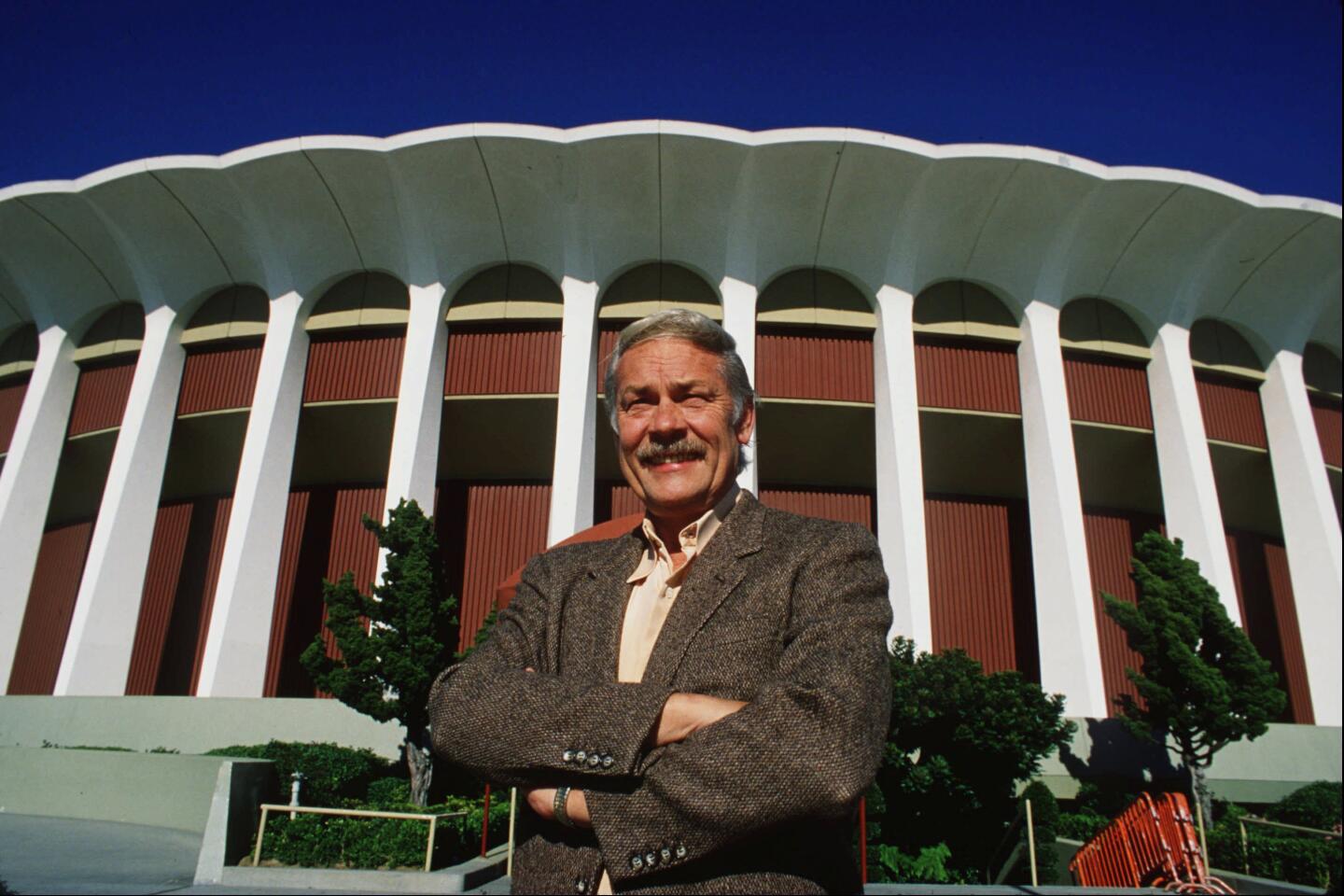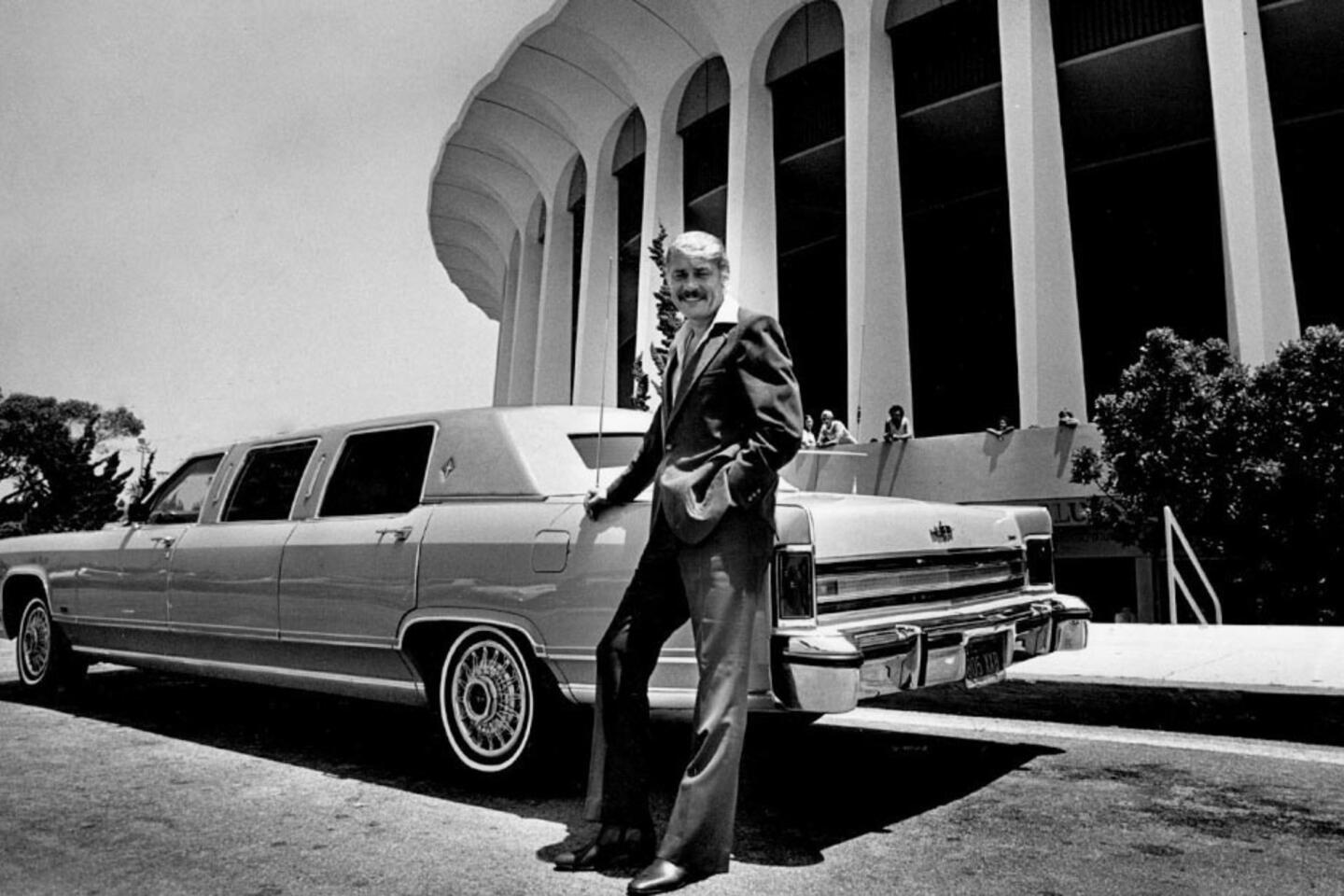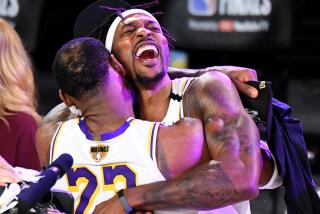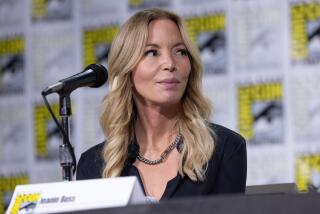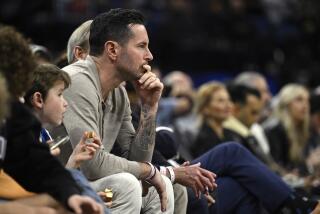Jerry Buss didn’t just put the Kings on ice
Jerry Buss was so strongly associated with the Lakers and their championships that it’s easy to forget he was the Kings’ second owner — and that they were more to him than a throw-in item when he bought the Lakers, the Forum, the Kings and a 13,000-acre ranch from Jack Kent Cooke in 1979.
Buss was more of a basketball fan than a hockey fan, but he put a lot of time and money into stabilizing and promoting the Kings. Soon after he took over, he signed high-scoring forward Marcel Dionne to a six-year contract worth a then-astonishing $600,000 a year, a pattern he followed with his NBA team.
“After the first year or two, he probably spent more time with Kings things than with the Lakers. My guess is he spent more time with George Maguire than with Jerry West,” Bob Steiner, Buss’ longtime spokesman, said of the general managers of the Kings and Lakers, respectively.
“It was a source of frustration for him that he couldn’t get more success with the Kings.”
But Buss had a good time trying.
“He was the first to admit that he didn’t know much about hockey, but he was around a lot and really enjoyed it,” said former Kings forward Charlie Simmer, who combined with Dionne and Dave Taylor on their Triple Crown line.
“I think he was amazed at what hockey players did, and the sport. The big thing for him was basketball, but as a hockey owner he was great. They put in incentives for us: There were a couple of trips to Hawaii that the team took. He definitely wanted to make sure that hockey survived in L.A., and he was a great personality to have associated with the team.”
He treated the team well, holding parties at which players met Hollywood stars and movers and shakers from various industries. “I don’t think I ever saw him in a suit. There was always a sports coat and dress shirt, but jeans,” Simmer said, smiling at the memory. “And obviously the entourage was always around him, male and female.”
Legend has it that Buss cared so little about the Kings that he left the Forum two periods into the 1982 “Miracle on Manchester” playoff game. But he told The Times in 1985 that he played a videotape of their rally over the Edmonton Oilers whenever the team’s failures saddened him.
“I’d watch it a lot, especially during the summers,” he said. “I’ve had to rely on that tape heavily. It may be the only good moment I’ve had with the Kings until this season.”
Buss began to sell portions of the Kings to coin and stamp collector Bruce McNall in 1986 and urged McNall to take an active role as the team’s president. But Buss was still enough of a presence to make an impression on a late-round draft pick named Luc Robitaille, who made his debut in 1986.
“He was my first owner and he has always been kind to me and even went out of his way to teach me about this city and what it means to be a winner here,” said Robitaille, who had a Hall of Fame career and is now the Kings’ president of business operations.
“From a player’s perspective, you have to perform well to make a dent in this city and he understood that better than anybody.”
It was Buss’ idea to acquire Wayne Gretzky from the Oilers, and Buss told The Times he came “within an inch” of completing a deal for Gretzky, goaltender Grant Fuhr and center Mark Messier for $17 million in 1987. A year later, when McNall made a similar cash-heavy trade, Buss sat alongside the newest King at Gretzky’s first news conference in Los Angeles.
“When Wayne came here, Dr. Buss understood what kind of impact Wayne could have,” Robitaille said.
McNall called Buss “a remarkable man,” and said Buss supported him when he pursued and won Gretzky.
“Unlike most owners of pro teams, he cared more about winning than the business, knowing that would come later,” said McNall, whose financial misdeeds led him to sell the team to businessmen Joe Cohen and Jeffrey Sudikoff in 1994.
“He taught me about how much power and responsibility owning a franchise carries with it for the city and the fans, and that they came first. We were close friends for many years, and I always turned to him for advice and help, as his journey was also not always easy.
“I, like all sports fans, owe him a lot.”
Buss sold controlling interest in the Kings to McNall in 1988 but always had a place in his heart for the sport. He told the NHL’s expansion committee in 1989 he was interested in acquiring an expansion franchise in San Diego or Orange County and paid a $100,000 filing fee to the league in 1990. He also wanted to buy a baseball or football team, though none of those plans ever came to pass.
In 1994 he told The Times he was sorry he sold the Kings. “I miss the hockey. I really do,” he said. “It’s just a great game. I really gave up the hockey with the thought of getting football. And then, when football went bye-bye on me, I kind of got left without any hockey.”
However, his influence on the Kings remains. Robitaille said that when he began working on the Kings’ business operations he recalled what Buss had told him over the years.
“I went back and looked at Dr. Buss’ philosophy and wanted to do the same thing with the Kings. You have to be willing to do everything to win,” Robitaille said. “With the Lakers, even if they had an off year, you knew they’d do what it took to perform better the next season. That’s why everybody wants to watch the Lakers. They win.
“And look at all the trades they made. When Magic Johnson was leaving, they got Kobe. They traded for Shaq. Dr. Buss knew you had to perform as a team and the people of L.A. appreciated that.”
helene.elliott@latimes.com
twitter.com/helenenothelen
More to Read
Go beyond the scoreboard
Get the latest on L.A.'s teams in the daily Sports Report newsletter.
You may occasionally receive promotional content from the Los Angeles Times.
